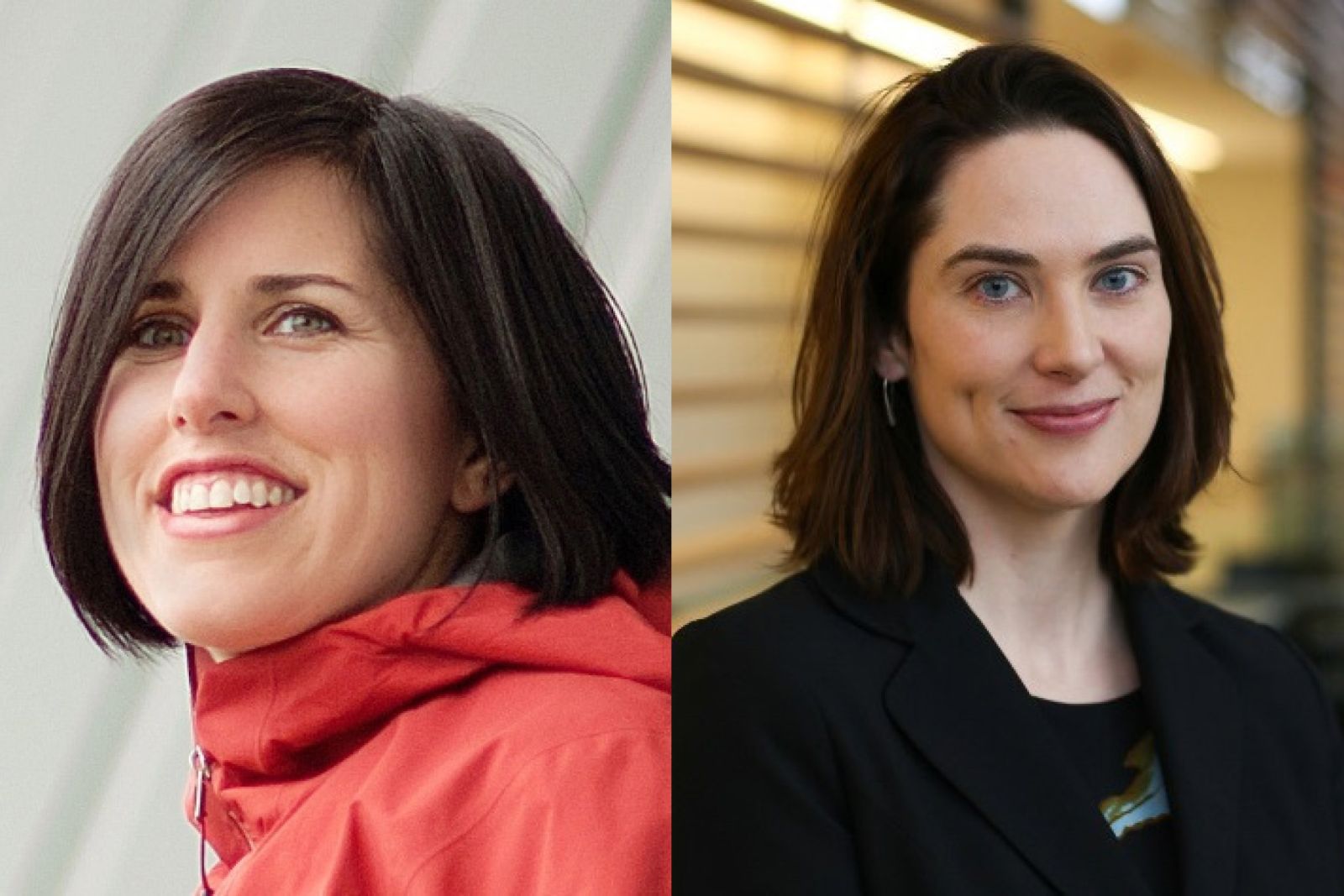
Left - Amy Latimer-Cheung. Right - Heather Aldersey
Research that is breaking down barriers
There are a multitude of barriers ranging from lack of opportunity to systemic biases that impose challenges on people with disabilities in accessing and fully participating in their communities. In Canada, this affects nearly 25 per cent of the population.
In partnership with national organizations, community groups, and people with disabilities and their families, two Queen’s researchers are leading projects that aim to improve access nationwide. Amy Latimer-Cheung (Kinesiology and Health Studies) and Heather Aldersey (Rehabilitation Therapy) and their teams have received more than $4M in the latest round of Partnership Grants from the Social Sciences and Humanities Research Council (SSHRC) to advance this work.
"Queen’s researchers are leading innovations in improving inclusion and equity for Canadians with disabilities," says Nancy Ross, Vice-Principal (Research). "We are proud that SSHRC not only continues to support this work, but also recognizes the value and importance of the participatory action-based research that Drs. Latimer-Cheung and Aldersey are advancing with these projects."
Partnership Grants support formal partnerships between researchers, industry, and private, public, and not-for-profit organizations that will advance knowledge and understanding of critical issues of intellectual, social, economic, and cultural significance. The grant allows partners to innovate, build institutional capacity, and mobilize research in accessible ways, by leveraging combined expertise to address a challenge.
Learn more about the Partnership-funded Queen’s projects below:
Quality play, sport, and exercise
Dr. Latimer-Cheung’s project aims to develop, implement, and evaluate quality sport, exercise, and play experiences for Canadians with disabilities. This work builds on research conducted during her previous SSHRC-funded research, which showed that to achieve full and effective participation and maximal psychosocial benefits, people with physical disabilities must have quality physical activity experiences.
The Canadian Disability Participation Project 2.0 has received $2.5M to support the development and national dissemination of evidence-based strategies and programs that create quality sport, exercise, and play participation for people with physical, intellectual, and sensory disabilities at all age ranges. Led by Dr. Latimer-Cheung, the team is comprised of 43 junior-, mid-, and senior-career researchers across 15 universities and partners from 31 national and regional sport, exercise, play/recreation, and disability organizations such as ParticipACTION, Special Olympics Canada, and Canadian Tire Jumpstart. Together they aim to bring Canada closer to meeting its obligations to support the United Nations-protected basic rights of people with disabilities to full and effective participation and inclusion in society.
Learning from disability support experiences around the world
Dr. Aldersey holds the Canada Research Chair in Disability-Inclusive Development and was recently appointed Special Advisor to the Principal on UN Sustainable Development Goals. Her project has received $1.6M to support partnerships between people with disabilities and their families, researchers, local community organizations, and international non-governmental organizations. Together they will examine global examples of strengths and success in natural support provision for people with disabilities. They aim to identify a model that balances natural supports, such as those provided by peers, family, and community members, and formal supports in the form of paid support providers and government assistance. The lack of appropriate supports can lead to poorer health conditions, social isolation, and overwhelming social and financial burden in families of persons with disabilities.
By analyzing global innovations and different models of support, the research will inform policy and best practice recommendations on what a Canadian national infrastructure that incentivizes and values natural supports in diversity could look like. This work will build on an active SSHRC Partnership Development Grant and Queen’s International Centre for the Advancement of Community Based Rehabilitation’s network to mobilize this research and inform future advocacy efforts.
To learn more about this round of Partnership grants, visit the SSHRC website. You can also read about Queen’s success in recent SSHRC Insight, NSERC Discovery, and CFI JELF grant competitions, in the Queen's Gazette.
Note: This article originally appeared in the Queen's Gazette.

